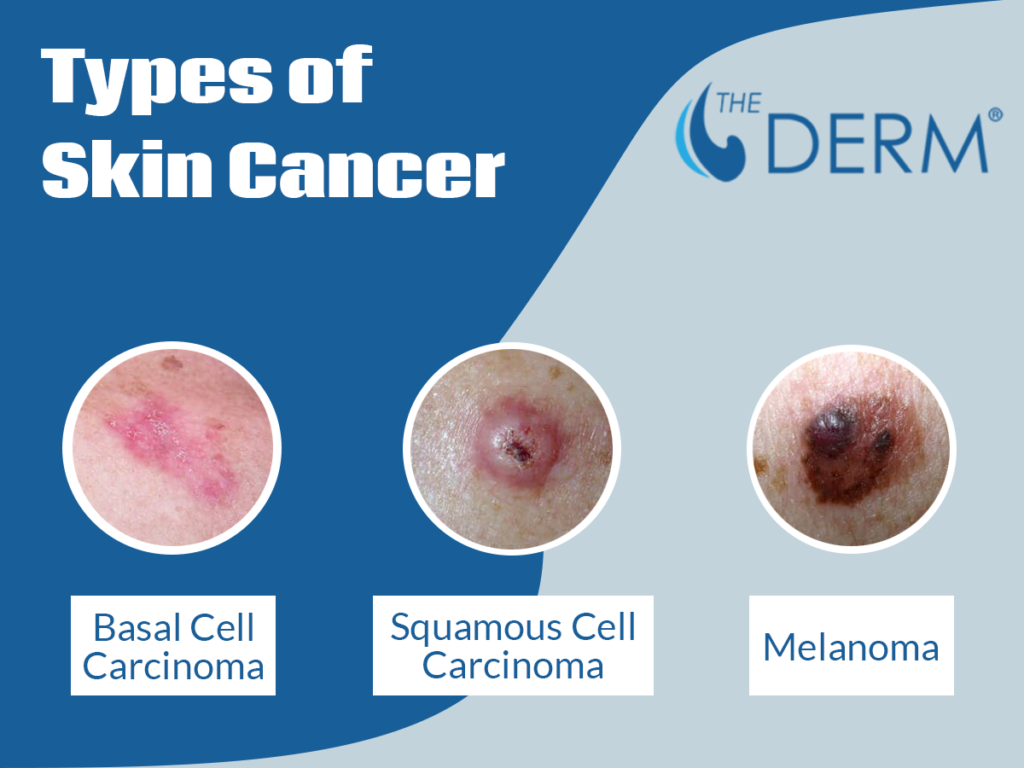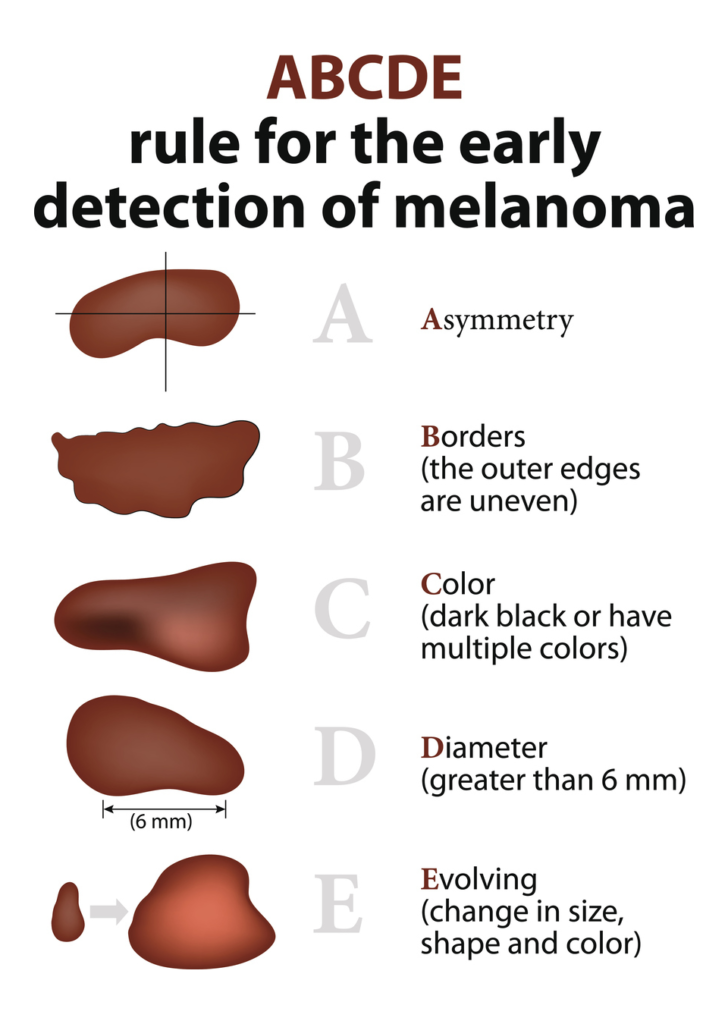We encourage a yearly skin cancer screening for all patients.
Skin cancer is the most common type of cancer in this country with about one million Americans developing skin cancer each year.
Skin Cancer Screenings are Vital
While some types of skin cancer are treatable, early detection is key in order to prevent it from spreading and developing into something much more dangerous.
This is why skin cancer screenings are so important. Oftentimes, a cancerous mole can look very much benign to your untrained eye, but to a professional, they’re able to see these for what they truly are: dangerous cancers in the making.
So even if you can’t “see” any moles or growths that look concerning, it’s always beneficial to have a professional do a skin check.
Types of Skin Cancers to Screen For
There are many types of skin cancer. The two most common types are basal cell carcinoma and squamous cell carcinoma.
These are sometimes called nonmelanoma skin cancer. These cancers usually form on the head, face, neck, hands, and arms. These areas are exposed to the sun, but skin cancer can occur anywhere, which is why it’s important to have a trained professional perform a full examination at least once a year, more often if you have family history of skin cancer or are at a higher risk for developing it (have had major sunburns in your life or have fair skin).
Here are the different types of skin cancers:
- Basal cell skin carcinoma: Basal cell skin cancer grows slowly. It usually occurs on areas of the skin that have been in the sun. It is most common on the face. Basal cell cancer rarely spreads to other parts of the body.
- Squamous cell skin carcinoma: This also occurs on parts of the skin that have been in the sun, but it also may be in places that are not in the sun. Squamous cell cancer sometimes spreads to lymph nodes and organs inside the body.
- Melanoma: This is a much less common type of skin cancer. This usually occurs on sun-exposed areas.

How to Check for Skin Cancer
There are a few guidelines that can help you tell if you should seek help immediately if there’s a growth or mole you’re concerned about.

Check for:
- Asymmetry
- Border
- Color
- Diameter
- Evolution
How to Treat Skin Cancer
Treatment for skin cancer depends on the type and stage of the disease, the size and place of the growth, and your general health and medical history. In most cases, the aim of treatment is to remove or destroy the cancer completely.
But first, you have to spot it early. Book an appointment today for a skin cancer screening and overall skin wellness check.
